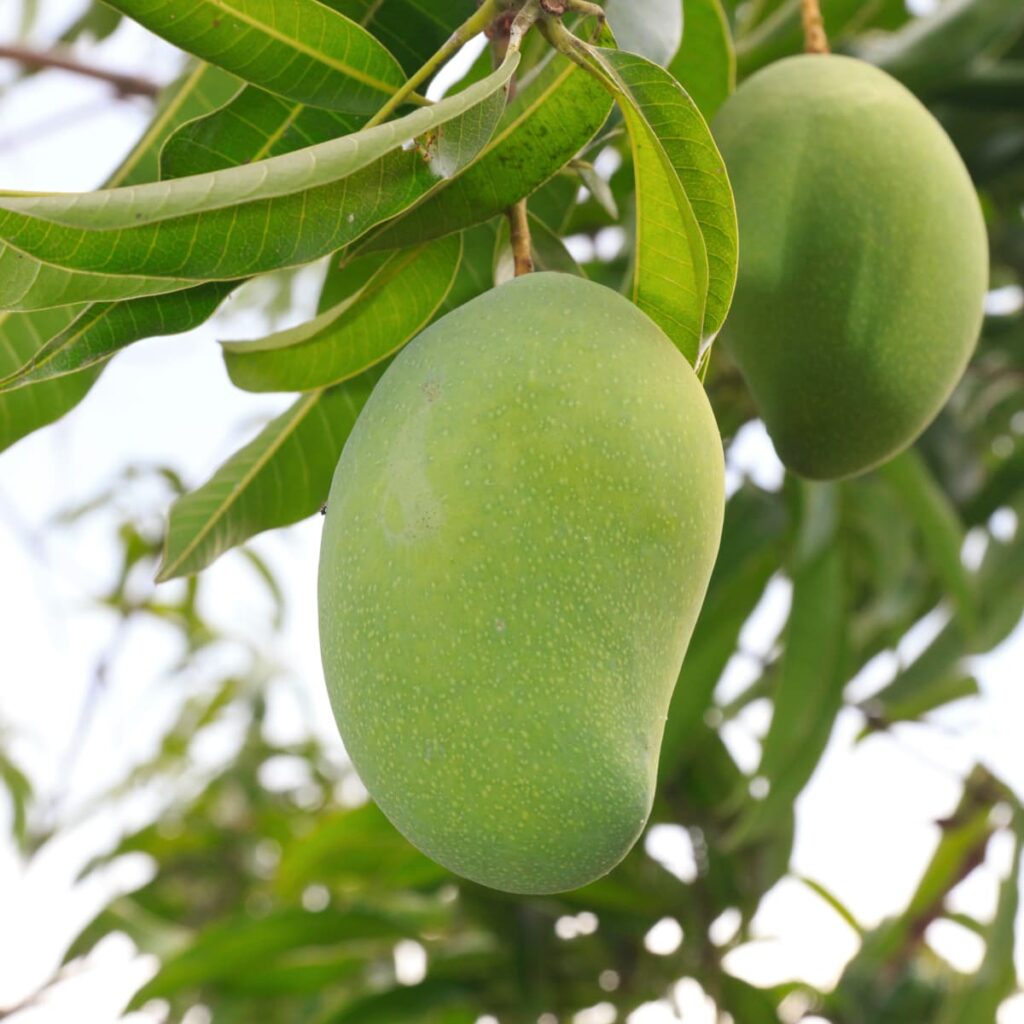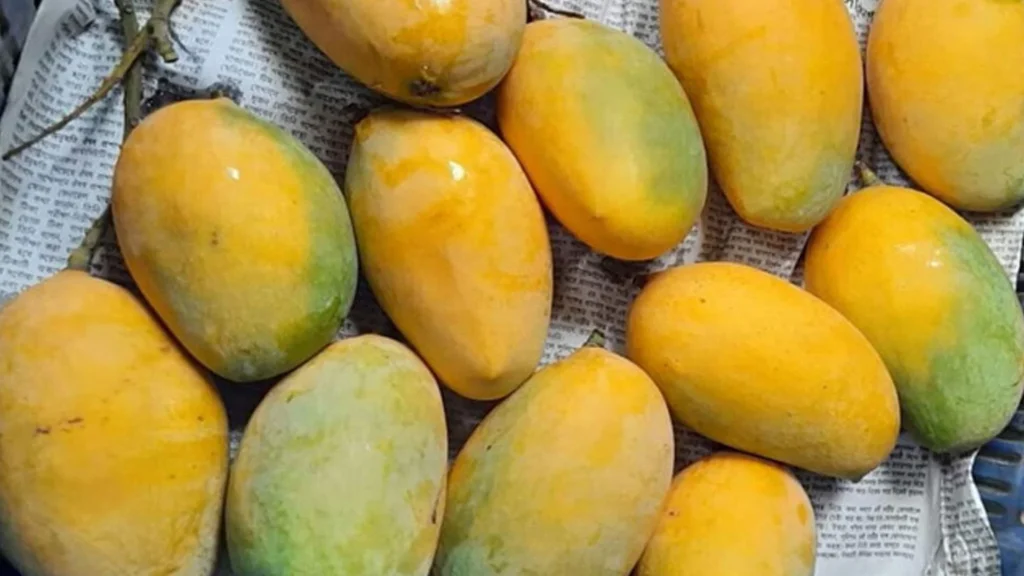The Rise of Bangladeshi Mangoes in the World Market
Md. Joynal Abdin*
Business Consultant & Digital Marketer
Founder & CEO of Trade & Investment Bangladesh
The Rich Heritage of Bangladeshi Mangoes:
Bangladesh, a land steeped in history and tradition, has long been celebrated for its rich agricultural heritage, particularly its cultivation of mangoes. Dating back centuries, mangoes have not only been a staple fruit but an intrinsic part of the cultural fabric of the nation. Nestled within the verdant orchards of Rajshahi and the fertile lands of Chapai Nawabganj, Bangladeshi mangoes have flourished, earning a reputation for their unparalleled flavor and diversity.
The mango, known locally as the “king of fruits,” holds a special place in Bangladeshi culture. Its cultivation dates back to ancient times, with historical records indicating its presence in the region as early as the 4th century BCE. Over the centuries, mango cultivation has become deeply intertwined with the agricultural practices and socio-economic life of the country.
One of the most remarkable aspects of Bangladeshi mango cultivation is the sheer variety of mangoes grown across the nation. With over a hundred distinct varieties, each boasting its own unique flavor profile, texture, and appearance, Bangladeshi mangoes offer a sensory journey unlike any other. From the vibrant hues of the Langra and Fazli to the sweet, succulent flesh of the Himsagar and Amrapali, each variety tells a story of its place of origin and the skillful hands that nurture it.
The lush orchards of Rajshahi, situated in the northwest region of Bangladesh, are renowned for producing some of the finest mangoes in the country. Here, the climate and soil conditions provide the perfect environment for mango cultivation, resulting in fruits that are celebrated for their exceptional taste and aroma. Similarly, Chapai Nawabganj, located in the fertile Gangetic plains, is hailed as another mango paradise, where orchards stretch as far as the eye can see, painting the landscape in hues of green and gold.
Beyond their culinary appeal, Bangladeshi mangoes hold cultural significance, featuring prominently in religious rituals, festivals, and traditional cuisines. During the summer months, mango festivals abound, offering an opportunity for communities to come together and celebrate the bounty of nature. Mangoes are also cherished for their medicinal properties, believed to possess cooling effects to combat the sweltering heat of the summer season.

Bangladeshi Mango
Overcoming Challenges: From Local Delicacy to Global Sensation
Bangladeshi mangoes, despite being cherished locally as a symbol of national pride and a delicious seasonal treat, encountered numerous obstacles in their quest for global recognition. These challenges, ranging from limited international awareness to infrastructural limitations and stringent export regulations, initially impeded their journey beyond the borders of Bangladesh. However, through collaborative efforts from various stakeholders, including government bodies, farmers’ cooperatives, and industry representatives, significant progress has been achieved in surmounting these hurdles and establishing Bangladeshi mangoes on the global stage.
One of the primary challenges facing Bangladeshi mangoes was the lack of widespread international awareness about their quality and diversity. While mango enthusiasts within Bangladesh reveled in the rich flavors and textures of locally grown varieties, many consumers abroad remained unaware of the country’s mango-producing prowess. This limited awareness posed a considerable barrier to expanding export markets and reaching discerning consumers worldwide.
Additionally, infrastructural constraints, including inadequate transportation networks and post-harvest handling facilities, presented logistical challenges for exporting fresh mangoes to international markets. The perishable nature of mangoes necessitated efficient cold chain systems to maintain their quality and freshness during transit. However, the existing infrastructure in Bangladesh often fell short of meeting these requirements, resulting in concerns about product quality and shelf life upon arrival in foreign markets.
Furthermore, stringent export regulations and trade barriers imposed by importing countries posed significant obstacles to the export of Bangladeshi mangoes. Compliance with international phytosanitary standards and certification requirements demanded meticulous attention to detail and investment in quality assurance measures. However, navigating these regulatory frameworks and obtaining the necessary certifications proved to be a daunting task for many small-scale farmers and exporters.
Despite these challenges, concerted efforts from government agencies, farmers’ cooperatives, and industry stakeholders have led to notable advancements in overcoming these obstacles. The government of Bangladesh has implemented various initiatives to promote mango exports, including providing financial support for infrastructure development, offering technical assistance to farmers, and negotiating trade agreements with importing countries to facilitate market access.
Additionally, farmers’ cooperatives and industry associations have played a pivotal role in organizing growers, pooling resources, and implementing best practices to enhance the quality and marketability of Bangladeshi mangoes. Collaborative efforts to improve post-harvest handling techniques, establish cold storage facilities, and implement quality control measures have resulted in a significant improvement in the overall quality and freshness of exported mangoes.
Quality Assurance and Export Standards:
Ensuring consistent quality is not just a priority but a necessity in establishing Bangladeshi mangoes as a premium product in the fiercely competitive global market. Every step of the mango’s journey, from cultivation to post-harvest handling, must adhere to rigorous quality standards to meet the expectations of discerning consumers worldwide. Through a combination of modern techniques, infrastructure upgrades, and strict adherence to international food safety regulations, Bangladesh has significantly enhanced the reputation of its mangoes on the global stage.
The journey begins in the mango orchards, where farmers meticulously cultivate and nurture the fruit. To maintain consistent quality, farmers employ best agricultural practices, including proper soil management, integrated pest management, and judicious use of fertilizers and pesticides. Varieties are carefully selected based on their flavor profile, texture, and resilience, ensuring that only the finest specimens make their way to market.
Post-harvest handling plays a critical role in preserving the freshness and flavor of Bangladeshi mangoes during transportation and storage. Recognizing the importance of this stage, significant investments have been made in modern packaging techniques and cold storage facilities. Innovative packaging solutions not only protect the fruit from damage but also extend its shelf life, allowing for longer transportation distances and access to distant markets. Cold storage facilities maintain optimal temperature and humidity levels, preventing premature ripening and preserving the mangoes’ natural taste and aroma.
Moreover, adherence to international food safety regulations is paramount in building consumer trust and confidence in Bangladeshi mangoes. Bangladesh has implemented stringent quality control measures, including certification programs and regular inspections, to ensure compliance with global standards. From orchard to export, every batch of mango undergoes rigorous testing for pesticide residues, microbiological contamination, and other contaminants, guaranteeing its safety and wholesomeness.
These initiatives have not only bolstered the reputation of Bangladeshi mangoes but have also positioned them as premium products coveted by discerning consumers worldwide. The commitment to quality and safety reflects Bangladesh’s dedication to excellence and sustainability in its agricultural practices. As a result, Bangladeshi mangoes have earned a loyal following among consumers who value superior taste, freshness, and ethical production practices.
In conclusion, ensuring consistent quality is fundamental to the success of Bangladeshi mangoes in the global market. Through investments in modern techniques, infrastructure upgrades, and adherence to international food safety regulations, Bangladesh has elevated the reputation of its mangoes to new heights. By delivering on its promise of premium quality and taste, Bangladesh is poised to capture a larger share of the global mango market and delight consumers around the world.

Bangladeshi Mango
To read 2nd Part of this Article, please click here!
The Rise of Bangladeshi Mangoes in the World Market

Md. Joynal Abdin, Business Consultant & Digital Marketer
Mr. Md. Joynal Abdin is a Business Consultant & Digital Marketer based in Dhaka, Bangladesh. He is Founder & CEO, Trade & Investment Bangladesh; Secretary General of Brazil Bangladesh Chamber of Commerce & Industry (BBCCI) and Co-Founder & CEO of Bangladesh Trade Center. Previously he served at Dhaka Chamber of Commerce & Industry (DCCI) as Executive Secretary; DCCI Business Institute (DBI) as Executive Director; SME Foundation as Deputy Manager; and the Federation of Bangladesh Chambers of Commerce & Industry (FBCCI) as Assistant Secretary.
The list of services Mr. Abdin is offering includes but not limited to Business Mentorship, Business Research and Documentations, Export Market Selection and Product Positioning at Home and Abroad; Buyers-Sellers Matchmaking; Website Development; Search Engine Optimization (SEO); and Social Media Marketing etc.



0 Comments